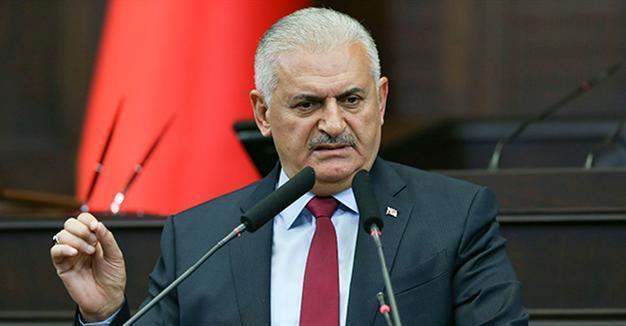Impact of coup attempt on Turkish economy no worse than Russian jet crisis: PM Yıldırım
ANKARA

AA photo
Trying to downplay the economic fallout from Turkey’s recent failed attempted coup, Prime Minister Binali Yıldırım has vowed that the attempt will not have a devastating effect on the economy. Speaking in a televised interview with Bloomberg News on July 25, Yıldırım said the economic impact of the coup attempt would be no greater than the jet crisis between Turkey and Russia.
Admitting that the coup attempt of July 15 has caused some damage to the economy, the prime minister said that damage remained “limited to some fluctuations in financial markets” and added that these fluctuations returned to normal within a couple of days.
The Turkish Lira climbed by more than 1.5 percent on July 25 as its post-coup attempt recovery continued.
There was also a broad-based rebound in Turkish markets, which sold off heavily last week following the failed coup. Alongside the rising lira, Turkish stocks rallied 3.4 percent on July 25 to put them on course for their best day in more than a month after their 13 percent plunge last week, Reuters reported.
Yıldırım criticized Standard & Poor’s decision shortly after the coup to downgrade Turkey’s credit rating to BB/B from BB+/B.
“The coup attempt has of course an impact on the Turkish economy. But S&P immediately cut our stance. This was unethical, almost taking advantage of the situation. These agencies should not rush into such situations. The Turkish economy does not deserve this,” he noted.
“The debt-to-GDP of Turkey is just around 30-32 percent, much lower than the EU average of 116 percent and the OECD average of 93 percent. There are now very few EU members that could meet the Maastricht Criteria, but Turkey has shown a great performance since 2009,” Yıldırım said, inviting investors to continue investing in Turkey.
Ratings agency S&P on July 20 downgraded Turkey’s sovereign credit rating deeper into junk territory after the July 15 failed coup attempt.
“Following the attempted coup in the Republic of Turkey on July 15, we believe the polarization of Turkey’s political landscape has further eroded its institutional checks and balances,” said the agency, warning of “a period of heightened unpredictability” after lowering the foreign and local currency sovereign credit ratings a notch.
Yıldırım vowed that Ankara was committed to keeping strong growth on track but provided few details on the new “wealth-management fund,” beyond saying it would be worth “tens of billions of dollars” and would not threaten the country’s low budget deficit.
“It’s a structure that will finance large-scale projects,” he said.
“We are going to finance investments through this fund instead of the general budget,” added Yıldırım, referring to Turkey’s major infrastructure projects.
